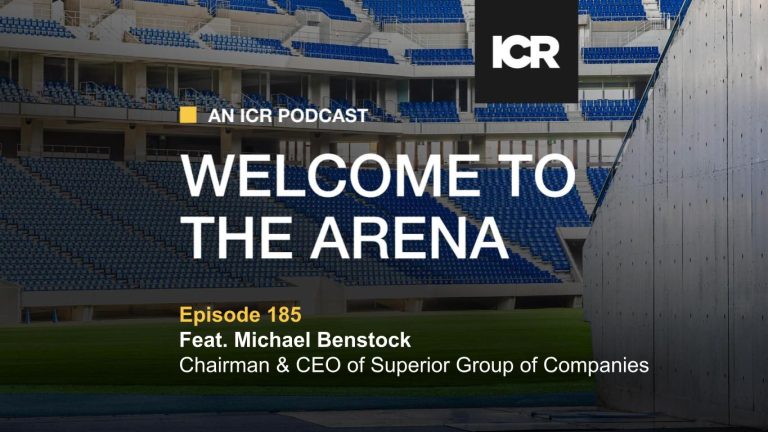“This goes to living values. It’s not about quotas on a page; it’s not about performative PR … When no one is looking, we take actions every single day.” – Jocelyn Moore, Director at DraftKings, commenting on what ESG means beyond policy at the 2022 ICR Conference Panel: “ESG In the 2022 Proxy Season.”
According to Moore and other panelists at the ICR Conference, the foundation of an ESG strategy is for companies to tell their stories while staying absolutely authentic. To meet the grand array of environmental, social and governance nuances, companies and boards must balance their corporate ESG strategies by maintaining fiduciary duties while also appreciating and responding to stakeholder demands with purposeful, pragmatic and genuine action.
Shareholders are holding public companies to higher standards and aim to centralize stakeholder value over the long term. This ESG activism is begging for a holistic shift in company management that shapes fiduciary duty with a much wider scope than ever before. The change was further fueled by the pandemic, which “accelerated new business models, tech disruptions and societal shifts,” comments panelist Sabastian Niles, Partner at Wachtell, Lipton, Rosen & Katz. This escalation of values over value has risen in tandem alongside regulators, such as the SEC, which are increasingly pivoting to leadership roles on ESG matters.
Climate Change Takes Center Stage
It’s no surprise that climate change leads the conversation, particularly following the 2021 United Nations Climate Change Conference. Yet the full array of environmental, social and governance concerns are being embraced through the nuances of inclusive capital and as a method to create and protect stakeholder values.
Leading institutional investors have used their platforms to define sustainability as a key correlation with a company’s long-term corporate strategy, responsibility and subsequent success. BlackRock’s CEO, Larry Fink, defended his stance on stakeholder capitalism within his 2022 letter as “… not woke. It is capitalism.”
Fink argues that ESG is fundamentally a profit-seeking mechanism driven by beneficial relationships between companies, employees, customers, suppliers, communities, etc. He further pushed climate risk to center stage (amongst all investment risk) and urges companies to participate in mitigation efforts while articulating their preparations using TCFD (Task Force on Climate-related Financial Disclosures) as a mainframe. State Street also recently published their letter and seeks similar standards to climate commitments from companies. If not, they face consequential votes against directors across applicable indices, hastening the timetable for companies to quickly calibrate their risk management strategies in-line with decarbonization and climate governance, among others.
Evolving Expectations Around Diversity
Not to be placed in the shadows of environmental disclosures are the expectations for diversity, particularly focused towards board composition.
How are (diverse) boards best positioned to help companies execute across ESG concerns and issues? Niles provides a 10-point framework developed by his team at Wachtell that enables boards with proper governance tools to navigate the evolving expectations, while also adding another “E” to the acronym: employees. He recommends a series of mechanisms focused on understanding and staying abreast of E-ESG and sustainability issues, all backed by a dedicated board and committee structure. The list also suggests that boards should exercise judgement that takes all ESG stakeholder considerations under deliberation — a tone that should come from the top. To no surprise, external and internal reporting round out the remainder of the list under the precondition that key components, namely ESG strategy, material risks and mitigation efforts, are included.
The Ultimate Purpose of ESG
The purpose, however, in igniting an ESG strategy is for a company to tell its story with absolute authenticity and pragmatism. The genesis of it all — what shareholders, investors, customers and employees are all shouting for — is genuine purpose. These ESG issues ought to be ingrained into the company culture, mission and motivation, not purely created as a response mechanism. Moore describes the authentic lens through which DraftKings approaches ESG, using the company’s stance on DEI for example: “It is in our DNA; our employees demand it. We didn’t just wake up in 2020 and say, ‘Oh my gosh we need to be focused on diversity, equity and inclusion because there’s a racial reckoning going on.’ We believe in diversity, equity, and inclusion and belonging as a revenue multiplier.” Moore adds that true representation is not just a commitment, and it’s not just performative PR; it has no ground without action.
Telling that story with authenticity and avoiding greenwashing has teeth, especially when it comes from the top. Boards are able to help facilitate the conversation of a pragmatic ESG strategy and drive the coordination, communication and management further down the chain. Fink even defends that positioning a company’s purpose from its foundation is essential to long-term success. Despite political activists, media and others carrying large megaphones to advance their own agendas, employers have the opportunity to lead and control that narrative.
An Authentic, Mission-Driven Approach
The vast list of ESG concerns expressed by the varied frameworks, rating agencies and reporting initiatives provide recommendations and metrics for companies to curate their own ESG strategies. However, checking off every box or providing answers to every concern steers away from the true purpose of ESG and what stakeholders are seeking. This is where the board has enormous pull — helping management see beyond the complexities of ESG and come back to the basics.
Jill Smith, Director at R1 RCM, explains that boards are well positioned to reinforce the bedrock of a company’s ESG strategy. “Know who you are, what the important elements are, and stick to those,” Smith comments. Although the frameworks and rating agencies provide sound foundations to reflect extensive material stakeholder interests by industry, companies should reflect on a customized approach to maintain true authenticity. By addressing every concern across all imaginable ESG concepts, a company will not only unravel the very purpose of an ESG strategy, but it will open up holes and further imply an incomplete picture. Worse, a company could even create unintended impacts. Smith believes the board’s role is to have a commitment and be mission-driven first. Only once the cornerstones have been laid can a company begin to tell its story and ensure the right levels of stakeholder engagement. She recommends, “Stay true to who you are when you have the privilege and the management team and the board commitment to do so. Seek the opportunities to tell that story to all of [your] stakeholders.”
Companies are seeing waves of change across their industries, but that doesn’t mean all companies within their verticals must react equally. Take the oil and gas (O&G) sector, which, as a whole, is facing a bit of a crisis. How should O&G companies operate in this new environment successfully while also adapting to the new nuances and landmark changes that are trending on shareholder proposals? To stay authentic, it means having a comprehensive strategy that ensures company returns while also meeting stakeholder demands. It also means having the right balance between responsible continuity and growth while also knowing what does not work.
Shannon Kinney, Deputy GC, CCO and Corporate Secretary at ConocoPhillips (“Conoco”), also joined the panel and guided listeners through the processes by which her company has dealt with this new environment. Beyond climate commitment discussions at every single board meeting, the collective agreement that sustainability and ESG are strategic principles, the focus on capital allocation, and the prioritization of returns and cash flows, Conoco still faces shareholder uproars that may be easier satisfied by companies in other sectors. Kinney says that companies should be assessed on a case-by-case basis and so should their ESG strategies. Navigating through this “new normal” means having the confidence to meet appropriate demands and make the right changes that are pragmatic for the company, despite differentiating ESG strategies and disclosures among peers.
It also means actively engaging with shareholders. Kinney comments, “Shareholder engagement programs [are] critical and should be active, not reactive.” For example, via regular and proactive engagements with shareholders, Conoco was able to effectively and quickly respond to a new proposal demanding the management of Scope 3 emissions, a measure that Conoco and some of its investors defend are beyond the reach of control since the company is purely upstream. Kinney comments that in order to meet their goal of being “the most responsible producer,” the responsibility lies in meeting with shareholders to listen to their concerns, educating them on the authentic impact Conoco should create, and being transparent through disclosures.
The Value of Values
Ultimately, governance is the overarching stronghold against investor activism while disclosures are the vehicle by which transparency and confidence are determined. Companies may best achieve sturdy footing with investors when disclosures are provided in full and they explain the thinking and strategy across values. John Galloway, Principal and Global Head of Investment Stewardship at Vanguard, says that the agenda always comes down to a clear understanding of a company’s values and the context around why certain proposals make sense over others. Galloway further defends his stance by saying “Governance is the key,” and that it “drives our decision making on voting” above all else. When accountability, transparency and proactive considerations in regards to ESG are handled at the board level, even the most headlining news — be it climate or diversity — can be justified. It’s board accountability that ensures value above values.
To hear the full panel discussion, listen to the recording of “2022 Proxy Season Preview.”



